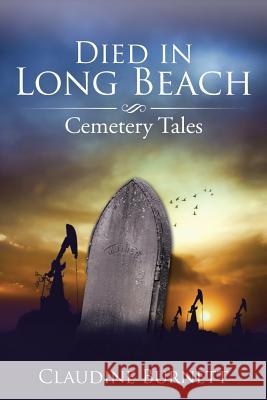Died in Long Beach: Cemetery Tales » książka
Died in Long Beach: Cemetery Tales
ISBN-13: 9781524611026 / Angielski / Miękka / 2016 / 316 str.
Long Beach was one of the many Southern California cities that grew out of the railroad fare wars of the late 1880s. It was built by men and women who toiled to make it the great metropolis it is today. These are the tales of those who died or are buried in Long Beach. Some were illustrious in their time, others just common folk with interesting stories to tell. Politicians, city founders, visitors, influenza victims, Civil War veterans and accident victims are all discussed here, as well as the hospitals, doctors, undertakers and others who cared for the dead and dying. But what makes Long Beach's Sunnyside and Municipal cemeteries different from all others is the question of whether the bodies said to be there still remain. The "cemetery wars" of the 1920s erupted when oil was discovered on Signal Hill. Oil and other debris ran over the graves and the promised mausoleum that many had already paid for was cast aside in favor of black gold. People were angry, barricading themselves by the cemeteries' gates to prevent oil rigs from getting to the mausoleum site. Slant drilling caused headstones and markers to sink into the ground, graves were covered by the run off debris from the oil fields above. Many bodies were moved, their headstones left behind, with haphazard records kept of where the corpses were relocated. It would take a 10 year court case to determine if the dead still had "rights." In this book you will learn about the fascinating history of Long Beach's unique cemeteries, the stories of those said to be buried in them, and whether Long Beach's "cities of the dead" may be haunted by angry souls whose final abode did not allow them to "rest in peace."
Long Beach was one of the many Southern California cities that grew out of the railroad fare wars of the late 1880s. It was built by men and women who toiled to make it the great metropolis it is today. These are the tales of those who died or are buried in Long Beach. Some were illustrious in their time, others just common folk with interesting stories to tell. Politicians, city founders, visitors, influenza victims, Civil War veterans and accident victims are all discussed here, as well as the hospitals, doctors, undertakers and others who cared for the dead and dying. But what makes Long Beachs Sunnyside and Municipal cemeteries different from all others is the question of whether the bodies said to be there still remain. The "cemetery wars" of the 1920s erupted when oil was discovered on Signal Hill. Oil and other debris ran over the graves and the promised mausoleum that many had already paid for was cast aside in favor of black gold. People were angry, barricading themselves by the cemeteries gates to prevent oil rigs from getting to the mausoleum site. Slant drilling caused headstones and markers to sink into the ground, graves were covered by the run off debris from the oil fields above. Many bodies were moved, their headstones left behind, with haphazard records kept of where the corpses were relocated. It would take a 10 year court case to determine if the dead still had "rights." In this book you will learn about the fascinating history of Long Beachs unique cemeteries, the stories of those said to be buried in them, and whether Long Beachs "cities of the dead" may be haunted by angry souls whose final abode did not allow them to "rest in peace."











